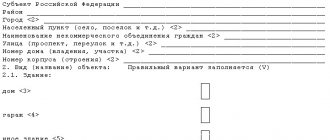1. Under an exchange agreement, each party undertakes to transfer one product into the ownership of the other party in exchange for another.
2. The rules on purchase and sale (Chapter 30) are applied to the exchange agreement, if this does not contradict the rules of this chapter and the essence of the exchange. In this case, each party is recognized as the seller of the goods, which it undertakes to transfer, and the buyer of the goods, which it undertakes to accept in exchange.
- Article 566
- Article 568. Prices and expenses under an exchange agreement
Commentary to Art. 567 Civil Code of the Russian Federation
1. Legal definition of the barter agreement contained in paragraph 1 of the commentary. Art., allows us to characterize it as a consensual, mutual (synallagmatic) and compensated contract. The peculiarity of the barter agreement is that its consideration is characterized not exclusively by monetary (as in the sale and purchase), but by commodity (in whole or in part) consideration.
2. The barter agreement acts as an independent contractual structure. However, since barter, like purchase and sale, mediates relations regarding the alienation of property for compensation, paragraph 2 of the comment. Art. provides for the application of the rules of Chapter. 30 of the Civil Code on purchase and sale. In this case, the norm of paragraph 2 of the comment. Art. is only a legislative technique, a way to save normative material and does not turn the exchange agreement into two counter-directed purchase and sale agreements.
Point 2 comment. Art. allows the application to an exchange agreement not only of the general rules on purchase and sale, but also Ch. 30 of the Civil Code as a whole, if this does not contradict the special rules on the exchange agreement and the essence of the exchange (for more details, see: Romanets Yu.V. System of agreements in civil law of Russia. M., 2001. P. 311 - 312). Accordingly, depending on the specifics of the subject composition or subject matter, the provisions of § 3 - 8 ch. should also be applied to the exchange agreement. 30 of the Civil Code, which do not conflict with the essence of the exchange.
3. Comment. Art. (as well as other norms of Chapter 31 of the Civil Code) does not contain any special rules devoted to the subject of the exchange agreement. At the same time, the legislator uses the term “goods” to designate such an item. This circumstance, coupled with the provisions of paragraph 2 of the comment. Art., allows us to state that the subject of exchange can be any object that can be the subject of purchase and sale, i.e. things and property rights not withdrawn from circulation (see: Civil law: Textbook, 4th ed., revised and supplemented / Edited by A.P. Sergeev, Yu.K. Tolstoy. M., 2003. T 2. P. 130 - 131 (author of the chapter - I.V. Eliseev); Novoselova L.A. Transactions of assignment of rights (claims) in commercial practice. Factoring. M., 2003. P. 36 - 39). Another opinion, limiting the range of possible objects of exchange only to things (see: Braginsky M.I., Vitryansky V.V. Contract law. Book 2: Agreements on the transfer of property. M., 2000. P. 265 - 266 (author of the chapter - V.V. Vitryansky)), although it is accepted today by judicial and arbitration practice (see paragraph 3 of the letter of the Supreme Arbitration Court No. 69), is not controversial. It leads to the recognition of an agreement, according to which property rights act as consideration for the transfer of a thing, as mixed, which contradicts paragraph 3 of Art. 421 of the Civil Code, since elements of the same contractual structure are mixed. In addition, such an approach neutralizes the guarantees of counter-performance established by Chapter. 31 Civil Code.
For more information about the possible objects of the barter agreement, see the commentary. to Art. 454 Civil Code.
Taking into account the provisions of paragraph 2 of the comment. Art. the specifics of the subject play a role in determining the norms of chapter. 30 of the Civil Code, subject to application to the exchange agreement (in particular, the rules of § 5, 7 - 8 of Chapter 30 of the Civil Code).
4. The condition on the subject is an essential condition of the exchange agreement (clause 1 of Article 432 of the Civil Code). It is considered agreed upon when determining the name and quantitative characteristics of the goods to be transferred (clause 3 of Article 455 of the Civil Code).
However, taking into account the provisions of paragraph 2 of the comment. Art. in relation to certain types of exchange, additional, in addition to the subject, significant conditions may arise. Thus, the condition regarding the period of transfer of goods becomes essential in the case when the rules of § 3 - 5 chapters are subject to application to the exchange agreement. 30 of the Civil Code, as well as in the case where the exchange agreement involves the transfer of goods by one or both parties in parts (in separate batches).
5. The parties to the barter agreement do not have special names. In order to properly regulate the mutual obligations of the parties to the barter agreement, paragraph 2 of the comment. Art. uses a special method of legal technique - each party is recognized as the seller of the goods that it undertakes to transfer, and the buyer of the goods that it undertakes to accept in exchange. This technique is based on fiction, as evidenced by the term “recognized” used.
As a general rule, the parties to an exchange agreement can be any subjects of civil law, taking into account the scope and nature of their legal capacity and legal capacity. Restrictions on the participation of individual entities in an exchange agreement are generally similar to restrictions on participation in a purchase and sale agreement.
Taking into account the provisions of paragraph 2 of the comment. Art. the specificity of the subject composition plays a role in determining the norms of Chapter. 30 of the Civil Code, subject to application to the exchange agreement (in particular, the rules of § 3 and 5 of Chapter 30 of the Civil Code).
Since the exchange agreement is consensual and, accordingly, gives rise only to legal obligations, the possibility of concluding an agreement does not depend on whether a person has title to the alienated thing. As a result, any person can act as a party to an exchange agreement, regardless of whether he is the owner or not (the only exceptions are contracts subject to state registration). A different opinion (see: Braginsky M.I., Vitryansky V.V. Contract law. Book 2: Agreements on the transfer of property. M., 2000. P. 261 (author of the chapter - V.V. Vitryansky)) does not take into account these circumstances and contradicts Art. 455 Civil Code.
6. Taking into account the provisions of paragraph 2 of the comment. Art. the form of the exchange agreement must be determined according to the relevant rules of Chapter. 30 of the Civil Code (for example, Art. 550, 560 of the Civil Code). In the absence of special rules, general provisions on the form of transactions and contracts are subject to application (Articles 158 - 161, 163, 434 of the Civil Code).
Based on the applicable rules of Sec. 30 of the Civil Code, the issue of the need for state registration of the exchange agreement must also be resolved.
Types of barter contracts
There are two main types of barter agreement:
- Closed (classic). In this case, a deal is concluded between two parties. The time of the transfer of property by both parties is indicated;
- Open. A transaction can be concluded with a large number of participants, and also, the exchange can be made at different times and in different quantities.
Also, the barter agreement is divided into types regarding the goods being exchanged:
- Same type goods , when the property being exchanged belongs to the same category. For example, an apartment for an apartment, a car for a car;
- Not the same type of product , when goods from different categories are subject to exchange, for example, an apartment is exchanged for a car.
If the cost of goods is not the same, the one who receives the more expensive property pays the difference.
The conclusion of an exchange agreement is possible: between individuals, legal entities, individuals and legal entities.
Judicial practice under Article 567 of the Civil Code of the Russian Federation
Determination of the Judicial Collegium for Economic Disputes of the Supreme Court of the Russian Federation dated July 12, 2019 N 303-ES18-18778 in case N A51-7622/2016
Consequently, the Almix company has the right to demand compensation for losses from the Vladstroyzakazchik company (joint and several debtor) on the basis of Article 393, paragraph 2 of Article 567, paragraph 2 of Article 463, Article 398 and paragraph 1 of Article 568 of the Civil Code, at least in the amount of the value of the lease right transferred by the Almix company.
Ruling of the Supreme Court of the Russian Federation dated March 31, 2017 N 305-ES16-21019 in case N A40-129135/2012
In canceling the decision of the court of first instance regarding the recognition of the exchange agreement as invalid and the decision of the appellate instance in its entirety, the district court was guided by the provisions of Articles 168, 296, 567, 568 of the Civil Code of the Russian Federation and proceeded from the fact that unless otherwise follows from the exchange agreement, the goods subject to exchange are assumed to be equivalent, and the costs of their transfer and acceptance are borne in each case by the party that bears the corresponding obligations.
Determination of the Judicial Collegium for Economic Disputes of the Supreme Court of the Russian Federation dated August 16, 2018 N 305-ES18-5672 in case N A40-29583/2016
To resolve this dispute, it is necessary to correctly qualify the legal nature of the agreements on the basis of which the mutual assignment of rights occurred. Considering that one party to the agreement provided rights of claim and in return received similar rights of claim to other borrowers, it should be recognized that the agreement on the basis of which the assignments were made was an exchange agreement (Article 567 of the Civil Code of the Russian Federation).
Ruling of the Supreme Court of the Russian Federation dated April 17, 2018 N 301-KG18-3908 in case N A43-23869/2017
The courts of the first and appellate instances, having examined and assessed, according to the rules of Article 71 of the Arbitration Procedure Code of the Russian Federation, the evidence presented in the case materials, guided by Articles 198, 200, 201 of the Arbitration Procedure Code of the Russian Federation, Articles 217, 567 of the Civil Code of the Russian Federation, Articles 1, 13, 34 of the Federal Law of 21.12 .2001 N 178-FZ “On the privatization of state and municipal property” (hereinafter referred to as the Law on Privatization), came to the conclusion that the contested refusal of the Ministry complies with the current legislation and does not violate the rights and legitimate interests of the entrepreneur in the field of entrepreneurial activity, since the Law The privatization law does not establish such a method of privatization as the exchange of property. At the same time, paragraph 2 of Article 34 of the Privatization Law contains a direct prohibition on the exchange of state or municipal property for privately owned property (except for cases established by this Federal Law).
Ruling of the Supreme Court of the Russian Federation dated July 6, 2018 N 306-ES18-9505 in case N A65-19001/2016
In such circumstances, the courts, guided by paragraph 1 of Article 166, paragraph 2 of Article 168, paragraph 2 of Article 170, Articles 525, 567, 568 of the Civil Code of the Russian Federation, the provisions of Law No. 44-FZ, subparagraphs 1, 2 of Article 72 of the Budget Code of the Russian Federation, taking into account the explanations contained in paragraphs 74, 75, 87, 88 of the resolution of the Plenum of the Supreme Court of the Russian Federation dated June 23, 2015 N “On the application by courts of certain provisions of Section I of Part One of the Civil Code of the Russian Federation”, we came to the conclusion that there are legal grounds for recognition of the agreement exchanges dated December 24, 2015 No. 2 are invalid.
Legislative framework and judicial practice
The legal regulation of the barter agreement is built on a combinatorial principle. Chapter 31 of the Civil Code of the Russian Federation contains only 5 small articles. The rest of the relationship is regulated by the rules of purchase and sale. Thus, counterparties are responsible to each other for the quality, completeness and proper condition of the transferred items. If unspecified defects are discovered, the injured party has the right to demand compensation for repair costs, insist on additional payment, or refuse the transaction.
When exchanging shares in real estate, the priority rights of co-owners must be respected. The corresponding clause is contained in paragraph 5 of Art. 250 Civil Code of the Russian Federation.
The highest judicial authorities are in charge of explaining the procedure for regulating barter relations. For example, letter No. 69 of the Supreme Arbitration Court of the Russian Federation dated September 24, 2002, is of great legal significance. The following positions are fixed in the document:
- Transactions involving the exchange of goods for services or rights of claim of equivalent value are not barter.
- In the absence of a name, assortment and other identifying characteristics of the property, the agreement cannot be recognized as concluded.
- If the exchange condition has been replaced by the payment of monetary compensation, the relationship is recognized as a purchase and sale. Requalification is carried out on the day of making changes to the documents.
- The actual transfer of things from one party to another does not indicate the conclusion of an exchange agreement.
- The production of goods from materials obtained through barter, as well as their subsequent sale to the same counterparty, does not change the legal nature of the transaction. The first operation remains an exchange.
- Products are considered unequal if there are corresponding data in the contract. The difference in value can be evidenced by the actions of counterparties, for example, payment.
- Barter bills are recognized as equivalent regardless of their denomination. You can deviate from the rule if there is a direct indication in the exchange agreement.
- If, according to the agreement, poor-quality property was transferred, the injured party has the right to a proportionate reduction in value. At the same time, it is impossible to insist on the transfer of additional products to make up the difference.
- The rules on counter performance apply to the exchange agreement (Article 328 of the Civil Code of the Russian Federation). One of the barter participants legally suspends the transfer of valuables if there is a real threat of the counterparty evading obligations.
- The parties acquire rights to the exchanged real estate only after making an entry in the Unified State Register of Real Estate.
- Upon termination of the transaction, the parties may reclaim previously transferred values. The condition for bringing such claims is unjust enrichment of the defendant.
- Evasion of payment of the difference in the value of the exchanged goods entails the accrual of interest. An unscrupulous partner must pay for the use of someone else’s capital from the second day after receiving the property.
- Improper performance of a barter contract (providing a low-quality item) does not give the right to seek compensation for damages based on unjust enrichment.
Business entities also have to comply with accounting rules. Since the law does not contain special names of the parties, the terms “seller” and “buyer” appear in the primary documentation. In this case, each participant alternately acts in one or another role. The control service does not consider this a violation (letter No. ММВ-20-3 / [email protected] dated 10/21/2013).






